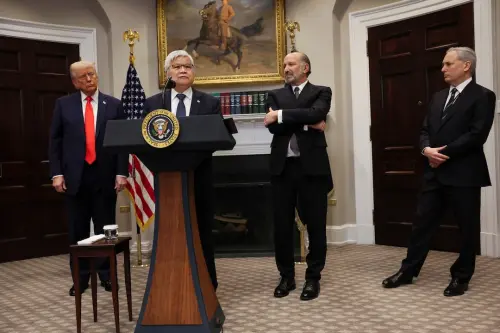Taiwanese semiconductor company TSMC announced a new $100 billion investment in the United States, intending to construct five additional chip facilities in the country in the upcoming years, as revealed by its CEO during a meeting with U.S. President Donald Trump on Monday at the White House. The plan includes three new chips fabrication plants, two advanced packaging facilities, and a significant R&D center. This enormous investment aims to enhance domestic production, decrease reliance on Asian semiconductor suppliers, and mitigate supply chain risks for major U.S. technology firms like Nvidia, Qualcomm, and Advanced Micro Devices.
The expansion builds upon a previous announcement made last April, where TSMC initially planned a $65 billion investment with a third factory in Arizona by 2030. While the timeline for the new investments was not specified, TSMC estimates these projects will generate 40,000 construction jobs over the next four years. The company's collaboration with U.S. chip industry leaders signifies a strategic step towards strengthening the technology sector in America.
Moreover, TSMC's engagement in U.S. semiconductor activities dates back to the first Trump administration in 2019, which led to the introduction of the CHIPS and Science Act in 2022 under President Joe Biden. This legislation allocates $52.7 billion in subsidies towards American semiconductor production and research. Recognizing the importance of semiconductor manufacturing in the U.S. for national security reasons, the Commerce Department successfully persuaded five major semiconductor companies to establish factories within the country.
Amidst concerns over over-reliance on Taiwan for chip production and China's territorial claims, TSMC's commitment to investing in the U.S. aligns with efforts to bolster domestic industries, job creation, and technological advancements. The company's ongoing advancements in chip manufacturing, such as the production of 2-nanometer technology at its Arizona plant by 2028, demonstrate a strategic approach to supporting the semiconductor industry's growth and innovation.
